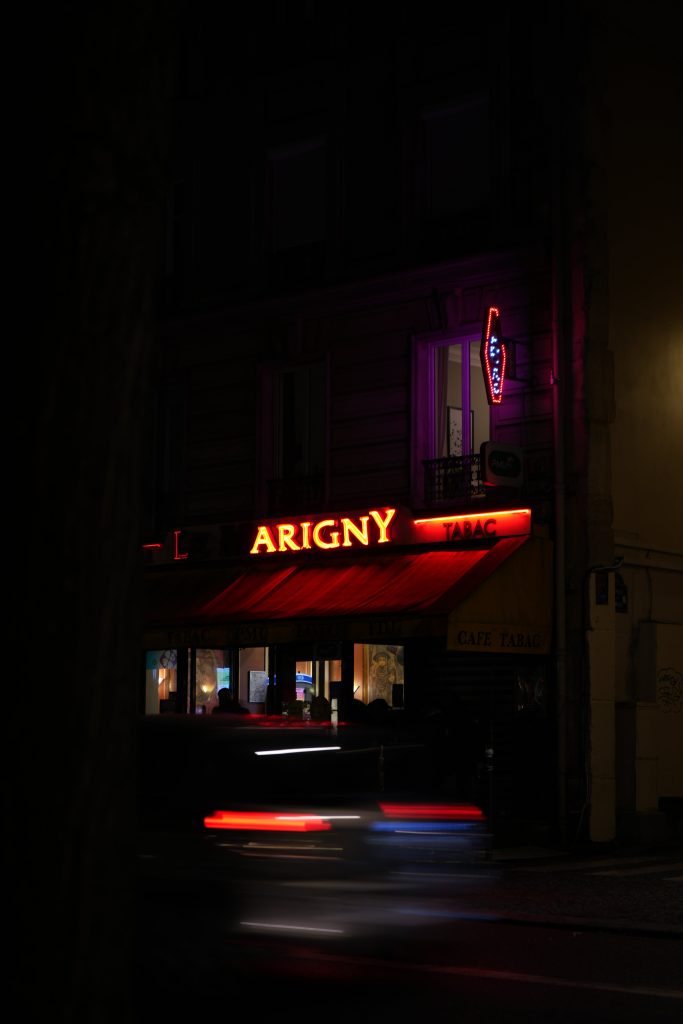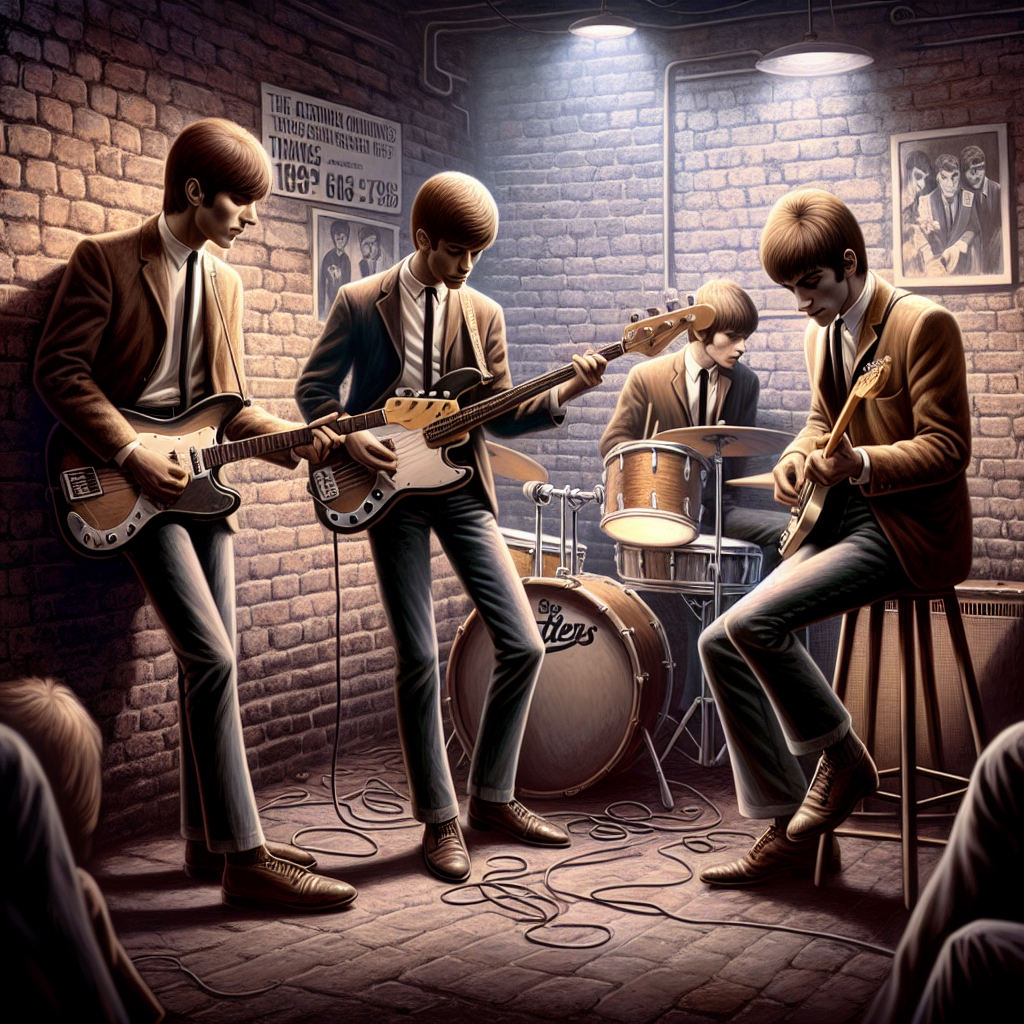If you’ve ever wondered about the origins of one of the most iconic bands in history, then you’re in for a treat. The Beatles, known for their timeless music and incredible impact on popular culture, actually started off with a different name. Curious to know what it was? Keep reading to uncover the fascinating story behind The Beatles’ original name. Get ready for a trip down memory lane with this intriguing tidbit about the Fab Four.

The Early Days
Formation of the Band
In the late 1950s, a group of friends from Liverpool came together to form a band that would go on to become one of the most influential and iconic groups in the history of music. The journey of The Beatles began with the meeting of John Lennon and Paul McCartney, who bonded over their shared love for music. Inspired by the rock and roll sounds of artists like Elvis Presley and Buddy Holly, they decided to form a band of their own. Little did they know that this decision would change the course of music forever.
Influences and Musical Style
As The Beatles started to develop their own musical style, they drew inspiration from a wide range of influences. From the energetic rock and roll of Chuck Berry to the soulful sounds of Motown, they incorporated various genres into their music. The band also admired the harmonies of groups like The Everly Brothers and The Beach Boys, which would later become a trademark of their own sound. With their innovative songwriting and experimental approach to music, The Beatles quickly began to carve out a unique identity that set them apart from their contemporaries.
The Quarrymen
Origin of the Name
In the early days of the band, they initially went by the name “The Quarrymen.” The name was taken from a school they attended, Quarry Bank High School, in Liverpool. It symbolized their humble beginnings and the roots they had laid down in their local community. Although the name would eventually change, it marked the foundation of what would later become The Beatles.
Early Lineup and Performances
The Quarrymen’s lineup consisted of John Lennon, Paul McCartney, and George Harrison, along with several other members who joined and left the band over time. Their performances primarily took place at local venues in Liverpool, such as church halls and clubs. While they started by playing cover songs, they gradually began incorporating their own original material into their sets. These early performances not only honed their skills as musicians but also helped them build a dedicated local following.
Pete Best Era
First Recordings and Debut Single
As The Quarrymen evolved, they decided it was time to take their music to the next level. They headed to a recording studio in 1961 to lay down their first official recordings. The sessions resulted in the band’s debut single, “My Bonnie,” which featured Tony Sheridan as the lead vocalist. Although the single didn’t achieve widespread success, it caught the attention of Brian Epstein, a local record store manager who would later play a pivotal role in The Beatles’ career.
Cavern Club Residency
The Cavern Club, located in Liverpool, would become an iconic venue in The Beatles’ journey. In 1961, the band secured a residency at this underground club, performing there regularly. Their energetic and captivating performances quickly gained them a devoted fan base. The Cavern Club became synonymous with The Beatles, serving as a launchpad for their future success and an integral part of their early years.
Rebranding as The Beat Brothers
Stuart Sutcliffe’s Departure
In 1961, The Beatles faced a significant change when Stuart Sutcliffe, the band’s bassist and close friend, decided to leave the group to focus on his art career. While his departure was a loss for the band, it also marked the beginning of a new chapter in their journey.
Recording in Germany
With Sutcliffe gone, The Beatles decided to venture out of their comfort zone and embark on a residency in Hamburg, Germany. This experience allowed them to refine their skills as performers and broaden their musical horizons. During their time in Germany, they also had the opportunity to record at the famous Hansa Studios, further solidifying their commitment to pursuing a career in music.

Discovery of Another Band named The Beatals
Decision to Change the Name
As The Beatles continued to evolve, they discovered that another band was already using a similar name, The Beatals. To avoid confusion and establish their own unique identity, they realized it was necessary to change their name.
Brainstorming for a New Name
With the goal of finding a name that was catchy, memorable, and representative of their music, The Beatles embarked on a brainstorming session. It was during this time that John Lennon came up with the playful wordplay that would ultimately become their new name, The Beatles.
The Beatles is Born
John Lennon’s Playful Wordplay
John Lennon’s witty wordplay led to the birth of The Beatles. By replacing the “beet” in “beat” with “beatles,” Lennon cleverly incorporated the concept of music and rhythm into the band’s name. It was a testament to their passion for creating music that spoke to people’s hearts and souls.
First Official Recording as The Beatles
With the new name in place, The Beatles recorded their first official release under their new moniker. In 1962, they released their debut single “Love Me Do,” which marked the beginning of their meteoric rise to fame. The infectious energy and charisma showcased in this recording set the stage for what was to come.

Brian Epstein’s Management
Signing with Epstein
In 1962, The Beatles caught the attention of Brian Epstein, who saw their potential and became their manager. Epstein’s professionalism and belief in the band helped them secure a record deal with Parlophone, a subsidiary of EMI. His strategic guidance and dedication to their success allowed The Beatles to focus on their music while he handled the business side of things.
Beatlemania Begins
With Epstein’s management, The Beatles’ career skyrocketed. Their music struck a chord with audiences worldwide, and their popularity exploded. The term “Beatlemania” was coined to describe the frenzy and fanatical devotion their fans exhibited. The band’s infectious charm, catchy melodies, and innovative sound captured the hearts of millions, marking the beginning of a global phenomenon.
Breakthrough with ‘Please Please Me’
Recording the Album
In 1963, The Beatles released their debut studio album, “Please Please Me.” Recorded in a single day-long session, the album showcased their distinctive harmonies, energetic performances, and infectious songwriting. It was an instant hit, capturing the essence of the band’s live shows and setting the stage for their future musical achievements.
Chart Success and International Fame
“Please Please Me” quickly climbed the charts, reaching number one in the UK and setting a precedent for the band’s subsequent releases. The album’s success catapulted The Beatles into international fame, with fans around the world embracing their music and clamoring for more. Their infectious melodies and relatable lyrics transcended language barriers, solidifying their status as global icons.

Continued Success and Cultural Impact
Evolution of their Sound
Throughout their career, The Beatles constantly pushed the boundaries of musical experimentation and innovation. From their early rock and roll roots to their exploration of psychedelia and orchestral arrangements, they continually evolved their sound. Albums like “Rubber Soul,” “Revolver,” and “Sgt. Pepper’s Lonely Hearts Club Band” showcased their artistic growth and cemented their place in music history as pioneers and trendsetters.
Critical Acclaim and Fan Adoration
The Beatles’ music resonated with both critics and fans alike. Their ability to blend catchy pop hooks with thoughtful lyrics garnered critical acclaim, and their diverse fan base continued to grow. From teenagers to adults, people connected with the band’s music on a deep and personal level. Their songs served as anthems for a generation, addressing themes of love, social issues, and self-discovery.
Legacy and Influence
Impact on Music and Pop Culture
The Beatles’ impact on music and pop culture cannot be overstated. Their innovative songwriting, experimental studio techniques, and unparalleled charisma paved the way for future generations of musicians. Their influence can be heard in countless artists across genres, with their melodies, harmonies, and storytelling shaping the landscape of popular music. Their cultural impact extends far beyond their music, as they became symbols of a transformative era and the embodiment of a new wave of creativity and individuality.
Individual Careers Post-Breakup
Following their breakup in 1970, each member of The Beatles pursued individual careers that further solidified their place in music history. From Paul McCartney’s successful solo career to the introspective and influential work of John Lennon, George Harrison’s spiritual exploration, and Ringo Starr’s enduring presence as a beloved drummer, the Beatles’ legacy continued to thrive. Their individual careers showcased their immense talent and further cemented their influence on future generations of musicians.
In conclusion, The Beatles’ journey from their humble beginnings as The Quarrymen to their extraordinary success as global icons is a testament to their passion, talent, and innovation. Their music continues to resonate with audiences of all ages, and their legacy as one of the most influential bands of all time remains unparalleled. The Beatles’ originality, creativity, and timeless appeal have left an indelible mark on the world of music and popular culture.
Disclosure: As an Amazon Associate, I earn from qualifying purchases.

